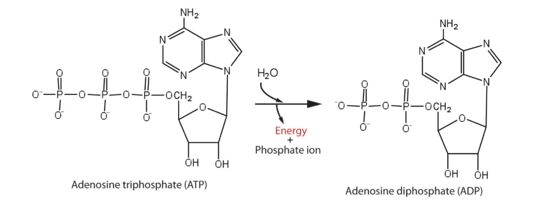We apologize for Proteopedia being slow to respond. For the past two years, a new implementation of Proteopedia has been being built. Soon, it will replace this 18-year old system. All existing content will be moved to the new system at a date that will be announced here.
Sandbox Reserved 1102
From Proteopedia
(Difference between revisions)
| Line 11: | Line 11: | ||
Zika is a [https://en.wikipedia.org/wiki/Double-stranded_RNA_viruses double-stranded RNA virus]. The [https://en.wikipedia.org/wiki/Viral_replication genome replication] of double-Stranded RNA virus need intervention of [https://en.wikipedia.org/wiki/Helicase helicase]. | Zika is a [https://en.wikipedia.org/wiki/Double-stranded_RNA_viruses double-stranded RNA virus]. The [https://en.wikipedia.org/wiki/Viral_replication genome replication] of double-Stranded RNA virus need intervention of [https://en.wikipedia.org/wiki/Helicase helicase]. | ||
| - | Protein from Zika is composed of a protease domain at its [https://en.wikipedia.org/wiki/N-terminus N terminus] and a helicase domain at its [https://en.wikipedia.org/wiki/C-terminus C terminus]. The multifunctional helicase belong to the superfamily 2 (SF2) helicase family. It is this helicase domain that has 5'-triphosphatase activity of Zika performs the critical and indispensable function of unwinding double-stranded RNA during Zika genome replication. So | + | Protein from Zika is composed of a protease domain at its [https://en.wikipedia.org/wiki/N-terminus N terminus] and a helicase domain at its [https://en.wikipedia.org/wiki/C-terminus C terminus]. The multifunctional helicase belong to the superfamily 2 (SF2) helicase family. It is this helicase domain that has 5'-triphosphatase activity of Zika performs the critical and indispensable function of unwinding double-stranded RNA during Zika genome replication. So it is an essential enzyme involved in the cycles of [https://en.wikipedia.org/wiki/ATP_hydrolysis ATP hydrolysis] and behaves as a motor protein in the RNA unwinding. Helicase performs ATP hydrolysis at the 5′ end of RNA to generate energy. The phosphorus atom of the γ-phosphate group of the ATP molecule is attacked by water molecule; then, the γ-phosphate group is released with ADP. With the use of the energy derived from ATP hydrolysis, helicase translocates along nucleic acid strands, unwinds the double-stranded RNA genome. |
| - | This is an essential step for viral RNA replication. It then provides conditions for the polymerization of RNA by an RNA-dependent RNA polymerase and the methylation of RNA by methyltransferase, which is crucial for Zika replication. In addition, it | + | [[Image:ATPhydrolysis.jpg | thumb | upright=3,5 | Energy from ATP hydrolysis]] |
| + | This is an essential step for viral RNA replication. It then provides conditions for the polymerization of RNA by an RNA-dependent RNA polymerase and the methylation of RNA by methyltransferase, which is crucial for Zika replication. In addition, it has been reported that the ATPase activity could alter viral replicative capacity and efficiency and consequently change the host innate immune response. | ||
ATP hydrolysis is the most basic event to the function of this helicase; however, the others dynamic mechanisms remain largely unknown, impeding the further understanding of the function of Zika helicase. <ref> Mechanism of ATP hydrolysis by the Zika virus helicase, The Faseb journal, 27 sep 2018, X. Yang and H. Yang conceived of and designed the experiments; X. Yang, H. Tian, H. Chi, Z. Mu, and T. Zhang performed the experiments; C. Chen, K. Yang, Q. Zhao, Z. Wang, X. Ji, and H. Yang analyzed the data; and X. Yang, C. Chen, X. Liu, and H. Yang wrote the paper.; https://www.fasebj.org/doi/10.1096/fj.201701140R </ref> | ATP hydrolysis is the most basic event to the function of this helicase; however, the others dynamic mechanisms remain largely unknown, impeding the further understanding of the function of Zika helicase. <ref> Mechanism of ATP hydrolysis by the Zika virus helicase, The Faseb journal, 27 sep 2018, X. Yang and H. Yang conceived of and designed the experiments; X. Yang, H. Tian, H. Chi, Z. Mu, and T. Zhang performed the experiments; C. Chen, K. Yang, Q. Zhao, Z. Wang, X. Ji, and H. Yang analyzed the data; and X. Yang, C. Chen, X. Liu, and H. Yang wrote the paper.; https://www.fasebj.org/doi/10.1096/fj.201701140R </ref> | ||
| Line 32: | Line 33: | ||
There are two ligands for zika helicase : ADP and Manganese II ion | There are two ligands for zika helicase : ADP and Manganese II ion | ||
| - | -ADP | + | -<scene name='82/829355/Adp/1'>ADP</scene> |
-<scene name='82/829355/Mn/3'>Manganese II ion</scene> | -<scene name='82/829355/Mn/3'>Manganese II ion</scene> | ||
Revision as of 10:29, 16 January 2020
| This Sandbox is Reserved from 25/11/2019, through 30/9/2020 for use in the course "Structural Biology" taught by Bruno Kieffer at the University of Strasbourg, ESBS. This reservation includes Sandbox Reserved 1091 through Sandbox Reserved 1115. |
To get started:
More help: Help:Editing |
5y6n- Zika virus helicase in complex with ADP
5y6n is a 1 chain protein structure. It’s the only helicase that belongs to zika virus. Zika helicase plays an important role in the pathogenocity of this virus.
| |||||||||||


